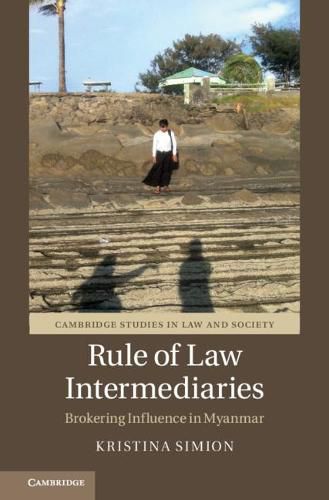Readings Newsletter
Become a Readings Member to make your shopping experience even easier.
Sign in or sign up for free!
You’re not far away from qualifying for FREE standard shipping within Australia
You’ve qualified for FREE standard shipping within Australia
The cart is loading…






Scholars puzzle over the conditions that make rule of law development in authoritarian settings successful. In this significant contribution, focusing on the decade of Myanmar’s political transformation, Kristina Simion explores rule of law assistance through the practice and experience of intermediaries, their capital, strategies and challenges. How do intermediaries influence the field, and the ways in which the rule of law is brokered transnationally? And why do they matter? Simion relates her research to law and sociology to bring to light these neglected players, focusing on who they are, the influence they have, their double agency and their crucial importance in establishing trust and translating rule of law. Relying on rich empirical data collected in Myanmar, the book shares the voices of the individuals that help to steer societal change within authoritarian confines. This socio-legal work offers some insights into why rule of law change in authoritarian settings often does not go expected ways, one of the development field’s long unresolved issues.
$9.00 standard shipping within Australia
FREE standard shipping within Australia for orders over $100.00
Express & International shipping calculated at checkout
Scholars puzzle over the conditions that make rule of law development in authoritarian settings successful. In this significant contribution, focusing on the decade of Myanmar’s political transformation, Kristina Simion explores rule of law assistance through the practice and experience of intermediaries, their capital, strategies and challenges. How do intermediaries influence the field, and the ways in which the rule of law is brokered transnationally? And why do they matter? Simion relates her research to law and sociology to bring to light these neglected players, focusing on who they are, the influence they have, their double agency and their crucial importance in establishing trust and translating rule of law. Relying on rich empirical data collected in Myanmar, the book shares the voices of the individuals that help to steer societal change within authoritarian confines. This socio-legal work offers some insights into why rule of law change in authoritarian settings often does not go expected ways, one of the development field’s long unresolved issues.